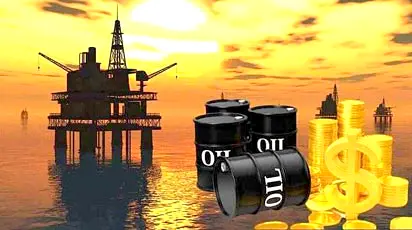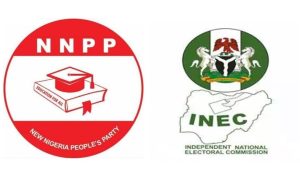Oil Market: Prices surge toward $120 per barrel on OPEC decisions
The prices of many crudes, yesterday, surged toward $120 per barrel on the decisions of the Organisation of Petroleum Exporting Countries, OPEC.
This was even as many buyers decided to shun Russian crudes, amid concerns about supply disruptions.
Specifically, the prices of Bonny Light, Brent, WTI, rose to $107, $111 and $109 per barrel, from $98, $104 and $108 per barrel respectively, yesterday.
It a statement obtained by Vanguard, OPEC, stated at the end of its 26th OPEC and non-OPEC Ministerial Meeting, that, “Following the conclusion of the 26th OPEC and non-OPEC Ministerial Meeting, held via videoconference on 2 March 2022, and based on internal consultation held exclusively by the OPEC and participating non-OPEC oil-producing countries in the Declaration of Cooperation of (DoC), it was noted that current oil market fundamentals and the consensus on its outlook pointed to a well-balanced market, and that current volatility is not caused by changes in market fundamentals but by current geopolitical developments.”
It also stated: “The OPEC and participating non-OPEC oil-producing countries decided to reaffirm the decision of the 10th Ministerial Meeting on 12 April 2020 and further endorsed in subsequent meetings including the 19th Ministerial Meeting on 18 July 2021.
“Reconfirm the production adjustment plan and the monthly production adjustment mechanism approved at the 19th Ministerial Meeting and the decision to adjust upward the monthly overall production by 0.4 mb/d for the month of April 2022, as per the attached schedule.
“Reiterate the critical importance of adhering to full conformity and to the compensation mechanism taking advantage of the extension of the compensation period until the end of June 2022. Compensation plans should be submitted in accordance with the statement of the 15th Ministerial Meeting.
“Hold the 27th OPEC and non-OPEC Ministerial Meeting on 31 March 2022.”
The Minister of State for Petroleum Resources, Timipre Sylva, had, said the increase in prices of crude oil is not in the best interest of Nigeria.
Reacting to the rising prices of crudes, including Brent, which rose to $103.33, from $96 per barrel in the global market, he had said Nigeria will be comfortable with prices ranging between $70 and $80 per barrel.
Specifically, he had said: “We are hopeful the prices will move around, maybe $80, maybe $70. We are hoping it will come down to somewhere around $70 to $80, which will be sustainable for us to the end of the year.”
“In 2021, the nation had agreed to voluntarily cut its daily crude oil production by 939,000 barrels between January and March after a meeting with the crucial meeting of the Organisation of Petroleum Exporting Countries (OPEC) and its allies.
According to him, “the inability of Nigeria to activate the oil wells it shut down when OPEC instructed producing countries to cut production, as well as the lack of investment in the upstream sector, are affecting the nation.”
He also, said: “We are working hard on that (production increase). What happened to us was the fact that we had to cut back at the time, and, of course, in such a way you can’t cut back mathematically.
“So, you want to cut back 100,000 barrels that you shut out, maybe we’ll shut down about 200,000 to 300,000 barrels. So, at the end of the day, we over-complied because we just couldn’t achieve it mathematically.
“In trying to cut down, we cut down too much. And now to come back, it’s not been easy for us to get the wells back to production.”
He said, a lot of additional investments would be needed to ramp up production, but he lamented that foreign funding was drying fizzling out for the industry.
Similarly, in an interview with Vanguard, Energy Partner at Bloomfield Law Practice, Ayodele Oni had also explained that the rising crude oil prices have positive and negative implications to Nigeria as a country.
He had said: “The positive aspect is that our revenue increases. Looking at the crude oil benchmark in Nigeria’s budget, it is obvious that we will earn much more than we expected but the setback is that we are not refining crude in-country at the moment, as the four refineries are still under rehabilitation.
“With this situation, we will spend more on importation of refined products and the subsidy payment will also increase substantially which is a big problem for us. This development will affect our income, revenue and also increase our expenditure.
“This rising crude oil price is more disadvantageous than advantageous to Nigeria because we do not refine locally. If we are refining sufficiently locally it will be a blessing to us.”
As regards the pricing, Oni stated that he foresees the crude oil price to rise further to $115 per barrel, but it will still drop to $80 or below.
In another interview with Vanguard, a Consultant at BL&C Limited, Bode Longe, had added that, “This is positive for us as a country considering the oil benchmark figure, and the actual price of crude in the international market. This is supposed to increase the Excess Crude Account, ECA, savings account.
“The ECA operates in a way that, if the actual oil revenue is greater than the budgeted oil revenue, we save to the ECA, but if the actual oil revenue is less than the budgeted oil revenue, we withdraw from the ECA.
“The slight challenge is, rather than follow through the deregulation of the PMS market from February 1, 2022, the government seems to have backed and pushed the implementation of the petroleum industry Act, PIA, for another 18 months.
“The real challenge is that the savings which we would have gotten from the higher price of crude will be fritter away in terms of subsidy payment, since NNPC has proposed N3 trillion for subsidy support.
“While the better thing to have done is to bite the bullet and deal with this subsidy issue once, so we can actual create a foreign reserve to support us when the oil price drops again, but as usual the government doing things the way it does, we are going to fritter it away into subsidy payment and when the oil price plunges, we are back again to where we are.”













